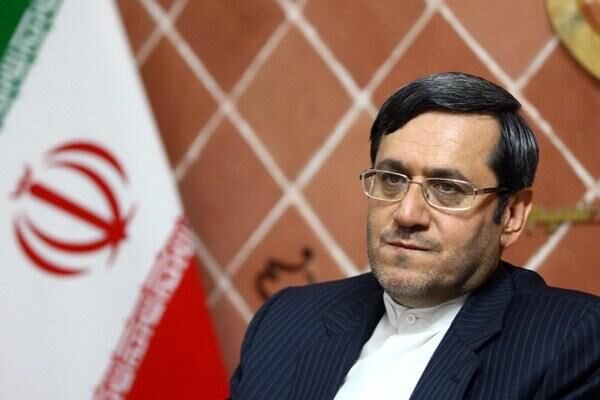Iranian envoy: Mogherini successor favors independent European foreign policy

TEHRAN – The Iranian ambassador to Spain has said that the newly-elected chief of the European Union’s foreign policy has proven in his past political records that he is against unilateralism, promising that the new chief is after independency of the bloc’s foreign policy approach.
Hassan Qashqavi’s remarks came in an interview with the official news agency IRNA published on Saturday.
“He (Borrell), according to experts’ belief, due to his opposition to the U.S. unilateralism, and his explicit criticism against Donald Trump, his support for Iran’s nuclear deal (JCPOA), his approach towards Iran’s Islamic Revolution and totally his empathic views towards Iran, is capable of playing effective role in future relations between Tehran and Europe,” the envoy pointed out.
Josep Borrell Fontelles was elected by the heads of the EU member states as the new High Representative of the Union for Foreign Affairs and Security Policy. He officially took office on Friday.
As a member of the Spanish Socialist Workers' Party, he served as Spanish Minister of Foreign Affairs, European Union and Cooperation of the Government of Spain since 2018.
Borrell took office from the Italian politician Federica Mogherini.
He further said, “Borrell is a competent replacement for Mogherini. He will be after reviving the European Union’s might and independency of its foreign policy.”
Qashqavi went on to say that Borrell favors a global and European view.
Borrell, last month, criticized the U.S. unilateral move to quit the JCPOA and stressed that his country would not accept threats against Iran.
He also emphasized Tehran’s commitment to its obligations under the nuclear pact.
On Wednesday, Mahmoud Vaezi, the presidential chief of staff, confirmed that Iran will take the fourth step to reduce commitments under the 2015 nuclear deal, if the remaining parties to the agreement fail to honor their obligations by the scheduled deadline.
The remaining parties to the JCPOA are the E3 – Britain, Germany and France – the European Union, Russia and China.
“A committee is studying this issue. We will definitely take the fourth step if we do not achieve what we are seeing in the talks by the end of the two-month deadline,” he told reporters.
U.S. President Donald Trump quit the multilateral deal in May 2018 and imposed the toughest ever sanctions on Iran.
On May 8, exactly one year after the U.S. abandoned the deal, Tehran began to partially reduce its commitments to the agreement at bi-monthly intervals.
MJ/PA
